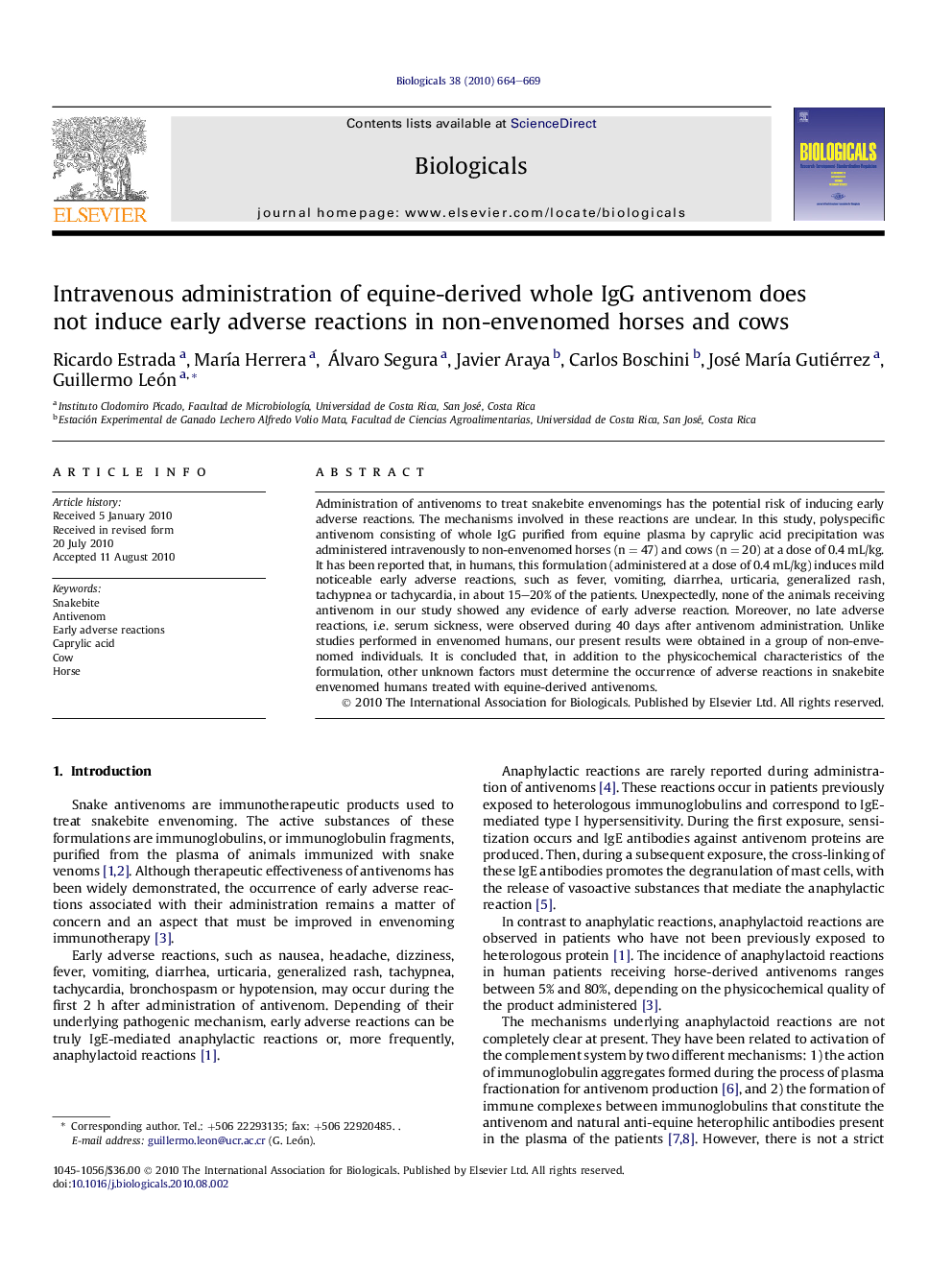| Article ID | Journal | Published Year | Pages | File Type |
|---|---|---|---|---|
| 2034455 | Biologicals | 2010 | 6 Pages |
Abstract
Administration of antivenoms to treat snakebite envenomings has the potential risk of inducing early adverse reactions. The mechanisms involved in these reactions are unclear. In this study, polyspecific antivenom consisting of whole IgG purified from equine plasma by caprylic acid precipitation was administered intravenously to non-envenomed horses (n = 47) and cows (n = 20) at a dose of 0.4 mL/kg. It has been reported that, in humans, this formulation (administered at a dose of 0.4 mL/kg) induces mild noticeable early adverse reactions, such as fever, vomiting, diarrhea, urticaria, generalized rash, tachypnea or tachycardia, in about 15-20% of the patients. Unexpectedly, none of the animals receiving antivenom in our study showed any evidence of early adverse reaction. Moreover, no late adverse reactions, i.e. serum sickness, were observed during 40 days after antivenom administration. Unlike studies performed in envenomed humans, our present results were obtained in a group of non-envenomed individuals. It is concluded that, in addition to the physicochemical characteristics of the formulation, other unknown factors must determine the occurrence of adverse reactions in snakebite envenomed humans treated with equine-derived antivenoms.
Related Topics
Life Sciences
Biochemistry, Genetics and Molecular Biology
Biochemistry, Genetics and Molecular Biology (General)
Authors
Ricardo Estrada, MarÃa Herrera, Álvaro Segura, Javier Araya, Carlos Boschini, José MarÃa Gutiérrez, Guillermo León,
